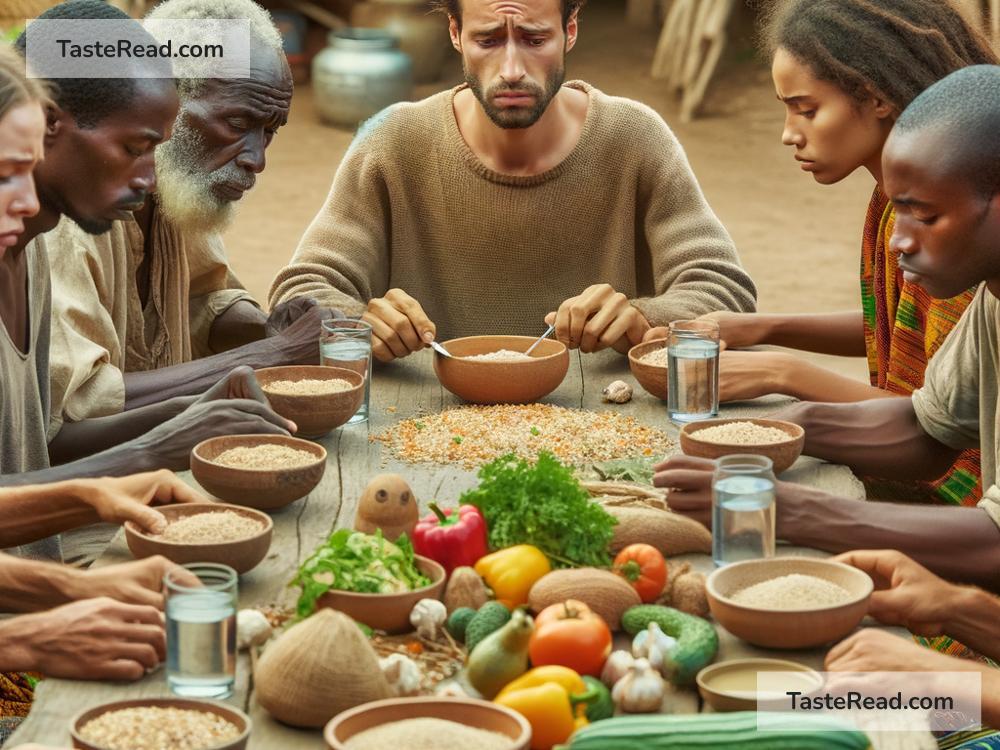The Impact of Food Crisis on Nutrition
In recent years, food crises have become a global issue, affecting millions of people around the world. A food crisis happens when people do not have enough food or access to nutritious food due to economic, environmental, or political problems. These crises can lead to hunger, malnutrition, and serious health problems, especially for children and vulnerable populations.
What Causes Food Crises?
There are many reasons why food crises happen. One of the main causes is climate change, which has disrupted farming and food production. Extreme weather events like droughts, floods, and storms damage crops and reduce the amount of food available. Farmers struggle to grow food, and this affects the supply chain, raising prices and making food less affordable.
Conflict and war are also major causes of food crises. When a country is at war, farms and markets are often destroyed, and transportation systems are disrupted. This makes it difficult for food to reach the people who need it. Additionally, refugees who flee conflict often lose their access to food and spend months or even years in conditions where nutritious food is scarce.
Economic challenges like poverty and inflation also contribute to food crises. For many families, even if food is available, they may not be able to afford it. Rising food prices make it harder for people to buy healthy and balanced meals, pushing them towards cheaper options that lack essential nutrients.
How Does Food Crisis Impact Nutrition?
Food crises create serious problems for nutrition. When people cannot access enough food, they do not get the nutrients they need to stay healthy. This is especially harmful for children, pregnant women, and the elderly, who need proper nutrition to grow and thrive.
-
Malnutrition: The most obvious impact of a food crisis is malnutrition. Malnutrition happens when the body doesn’t get enough vitamins, minerals, and energy to function properly. It can take two forms: undernutrition (not enough food) or overnutrition (too much of unhealthy food). Undernutrition leads to stunted growth, weak immune systems, and in severe cases, death. Overnutrition, often caused by eating cheap but unhealthy food, contributes to obesity and diseases like diabetes and heart problems.
-
Child Development: For children, nutrition is vital for physical and mental development. During a food crisis, children may miss essential nutrients like protein, Vitamin A, or iron, which are necessary for growth, strong bones, and brain development. Malnourished children are more likely to face learning difficulties, have lower school performance, and experience long-term health issues.
-
Weak Immune System: Without proper nutrition, the body’s ability to fight infections becomes weaker. People suffering from hunger or malnutrition are more likely to get sick, and their recovery takes longer. This is particularly dangerous during disease outbreaks or in regions with limited healthcare access.
-
Chronic Health Problems: Food crises often push people to focus on quantity over quality. In such situations, families may opt for cheap, calorie-dense foods like rice, bread, or processed snacks instead of fruits, vegetables, and protein-rich foods. This leads to a lack of essential nutrients, increasing the risk of chronic diseases like heart disease, diabetes, and high blood pressure.
-
Mental Health Impacts: Lack of proper nutrition also affects mental health. People who live in food-insecure areas often feel stressed, anxious, or depressed about their inability to feed their families. Poor nutrition can also reduce cognitive function, making it harder for people to concentrate or solve problems.
Who Is Affected Most During a Food Crisis?
Unfortunately, the food crisis doesn’t affect everyone equally. Vulnerable groups like children, pregnant women, the elderly, and people living in poverty are the most impacted. In poor communities, even a slight increase in food prices can drastically reduce a family’s ability to access nutritious meals. Refugees and people living in war-torn areas face even worse conditions, often surviving on food aid that may not be sufficient or nutritionally balanced.
Children suffer the most because their bodies are still growing. Malnutrition in early childhood can lead to lifelong issues such as stunted growth and learning disabilities. Pregnant women also need extra nutrients to stay healthy and ensure their babies develop properly. Without proper nutrition, both the mother and the baby are at risk.
What Can Be Done to Help?
Solving food crises and improving nutrition requires global cooperation. Governments, organizations, and individuals must work together to address the root causes of food insecurity.
-
Improved Food Distribution: Helping farmers grow crops and ensuring food is distributed fairly is important. Governments and organizations can invest in better infrastructure to transport food to areas that need it most.
-
Support for Farmers: Farmers need access to resources like seeds, tools, and knowledge to recover from climate or economic challenges. Supporting sustainable farming practices can help protect the environment while ensuring food security.
-
Affordable Food Programs: Governments and non-profits can create programs to make healthy food affordable for poor families. Food banks, school meal programs, and subsidies can help families access nutritious meals.
-
Nutrition Education: Educating communities about the importance of balanced diets is essential. Even during crises, people can learn how to use available resources to prepare healthier meals.
-
Global Aid: During emergencies, countries must come together to provide food aid and support for regions facing a crisis. Humanitarian organizations play a key role in delivering emergency food supplies to affected areas.
Final Thoughts
The food crisis is not just about hunger—it’s about the lack of proper nutrition that can have lasting effects on individuals and communities. Solving this issue requires serious effort from everyone involved, from governments to ordinary citizens. By working together to fight poverty, improve farming practices, and promote healthy eating, we can help ensure that every person has access to the nutritious food they need to live a healthy, productive life.


